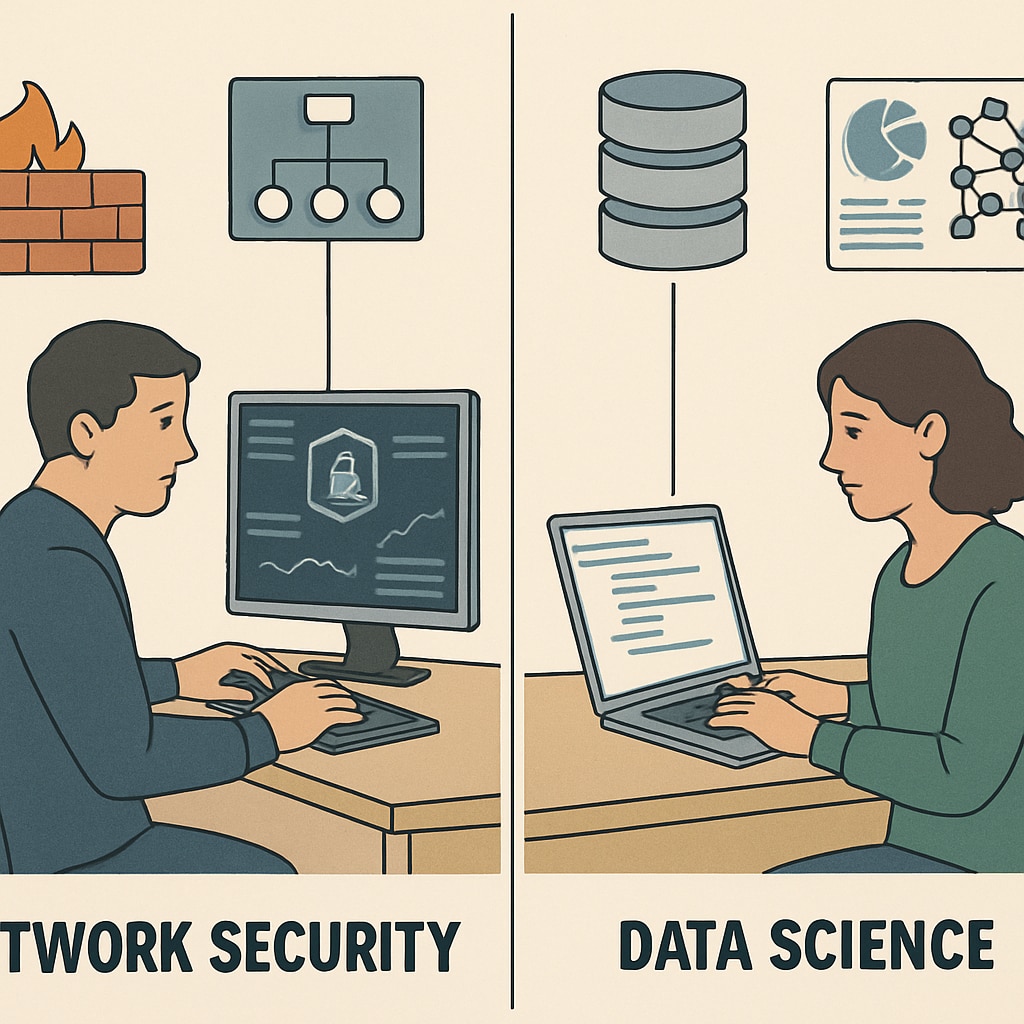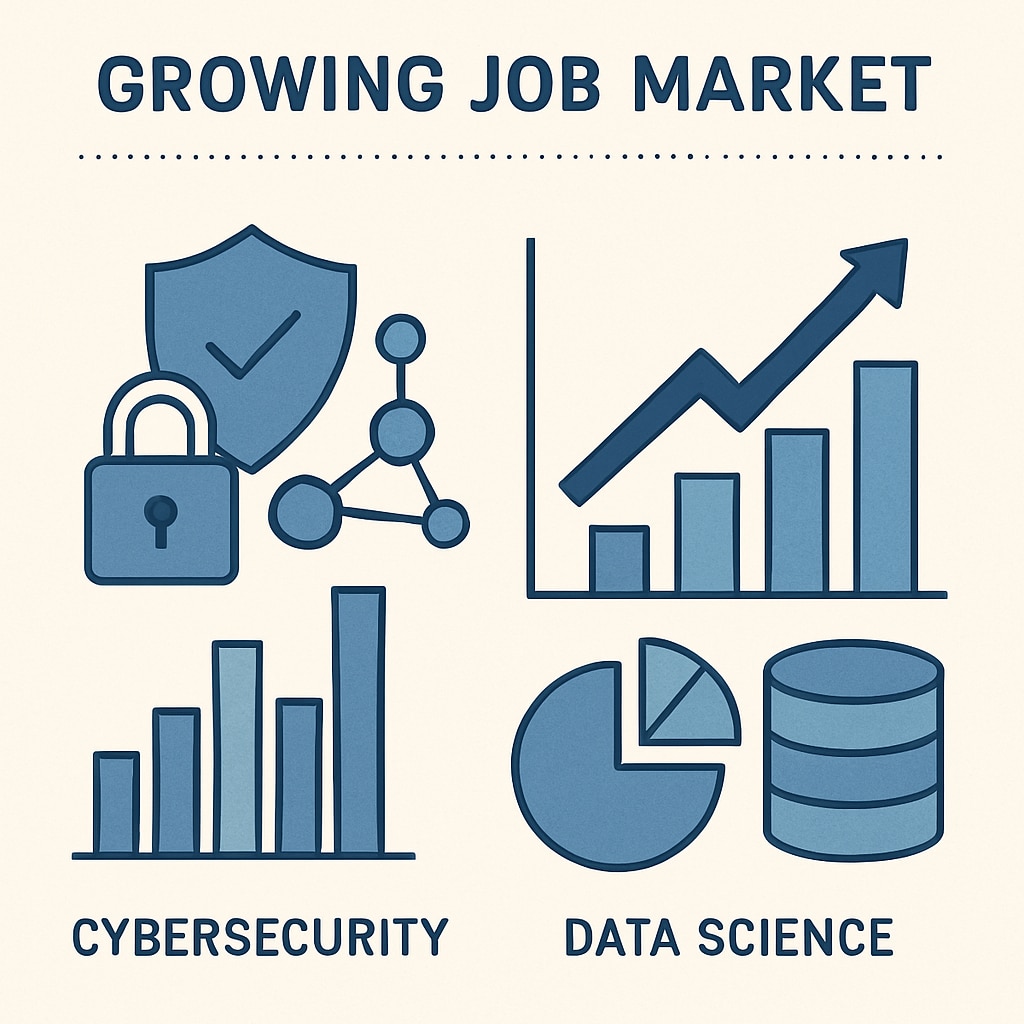When it comes to career planning for K12 students, the fields of cybersecurity and data science present exciting opportunities in the modern digital landscape. Understanding the key differences between these disciplines—along with their skill requirements, career prospects, and personal suitability—can help students make informed decisions about their futures. Whether you’re drawn to securing networks or analyzing data, this guide will provide the insights you need to navigate these growing fields.
Understanding Cybersecurity and Data Science
Cybersecurity focuses on protecting systems, networks, and data from unauthorized access and cyber threats. It demands expertise in areas like cryptography, ethical hacking, and risk management. On the other hand, data science involves analyzing and interpreting complex data to uncover patterns, trends, and actionable insights. Professionals in this field rely on tools such as machine learning, statistical modeling, and data visualization to solve problems and inform decisions.
Both fields are pivotal to the digital age, but their goals and methodologies differ significantly. While cybersecurity emphasizes defense and prevention, data science is centered on discovery and innovation. This distinction can influence the skills students need to develop and the roles they might pursue.

Skills and Education: What You Need to Succeed
Students interested in cybersecurity should focus on foundational knowledge in computer science, networking, and programming. Certifications such as CompTIA Security+, Certified Ethical Hacker (CEH), or CISSP can provide a competitive edge. Key skills include:
- System and network security
- Incident response and threat analysis
- Cryptography and encryption techniques
For data science, a strong background in mathematics, statistics, and computer programming is essential. Proficiency in tools like Python, R, and SQL is often required, as well as familiarity with big data platforms like Hadoop or Spark. Essential skills include:
- Data cleaning and preprocessing
- Machine learning and predictive modeling
- Data visualization and storytelling
It’s also important to note that both fields offer a mix of academic pathways (e.g., bachelor’s degrees, specialized bootcamps) and self-paced learning opportunities, allowing students to tailor their education to their interests and circumstances.
Career Opportunities and Growth
The career prospects in both cybersecurity and data science are robust, driven by the exponential growth of data and the increasing threat of cyberattacks. According to the U.S. Bureau of Labor Statistics, cybersecurity roles such as information security analysts are projected to grow 35% from 2021 to 2031, far outpacing the average. Similarly, data science roles are expected to grow by 36% during the same period.
Cybersecurity professionals can work as:
- Penetration testers (ethical hackers)
- Security analysts
- Cybersecurity consultants
Meanwhile, data scientists can find opportunities as:
- Data analysts
- Machine learning engineers
- Business intelligence specialists
Both fields also offer competitive salaries and the potential for remote work, making them attractive options for young professionals.

Choosing the Right Path: Personal Fit
When deciding between cybersecurity and data science, students should consider their personal interests and strengths. Cybersecurity might appeal to individuals who enjoy problem-solving, critical thinking, and staying ahead of potential threats. If you thrive under pressure and have a passion for safeguarding information, this field could be a great fit.
Data science, on the other hand, may attract those who love working with numbers, exploring patterns, and using creativity to uncover insights. If you’re intrigued by the idea of using algorithms to predict outcomes or improve systems, data science could be your calling.
It’s also worth exploring internships, projects, or online courses to gain hands-on experience in both fields. This can help students clarify their preferences and make a more confident decision about their future.
In conclusion, cybersecurity and data science each offer unique and rewarding career paths. By understanding the demands and opportunities of these fields, K12 students can take the first steps toward a successful and fulfilling career in technology.


